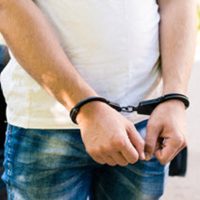Cops Use DNA Evidence to Locate Cold Case Suspect

A 51-year-old New York man is in custody and facing charges for a murder he allegedly committed thirty years ago.
In November 1994, a 37-year-old woman was found stabbed to death inside her home in Springfield, Virginia. Her 2-year-old daughter was in another part of the house during the stabbing. While investigating the case, crime scene Det. Mark Garmin collected a piece of forensic evidence that was kept for decades and is “why our killer is in custody three decades later,” Fairfax County Police Department Chief Kevin Davis said in a news conference on Monday.
When detectives began to process the scene, they collected DNA evidence that at the time did not match any sources in the police’s database, but in 2019, the DNA was submitted to a DNA testing company in Virginia. Investigators used the new DNA evidence to construct a family tree.
For the next three years, detectives investigated the case. That investigation ultimately led to the Niskayuna, New York man. Investigators claim the man voluntarily confessed to the crime after a brief interview.
Private vs. Public Labs
Police departments often privatize certain “back office” law enforcement functions, such as jail management and scientific testing, usually for cost reasons. When they do so, they sacrifice control and transparency. They also create additional problems which a Leesburg criminal defense attorney can exploit.
Private test labs, which rely exclusively on income for operating expenses, are even more cost conscious than taxpayer-funded police departments. So, whenever possible, these companies often over-delegate testing responsibilities to employees who are barely qualified to perform the job. But respect for civil rights is non delegable. Prosecutors cannot blame a private company’s mistake for a breakdown in this area.
Furthermore, once the DNA or other sample arrives at a private testing facility, no one is exactly sure what happens. Frequently, since the police department is only one of several clients, samples sit in storage facilities, where they degrade significantly. This degradation could affect the final results.
On a similar note, when police departments use private labs, they open the door for additional chain of custody issues. It’s bad enough that a sample must travel intact from the extraction point to a police lab to a storage facility to a courthouse. Adding additional moving parts makes it easier for a Leesburg criminal defense lawyer to highlight chain of custody issues.
Significantly, a lawyer need not “prove” the test was inaccurate. A lawyer must only create a reasonable doubt as to its reliability.
Reliable vs. Unreliable Scientific Evidence
Jurors who grew up watching CSI-type shows assume that all scientific evidence is reliable. That’s simply not the case.
Some such evidence, mostly DNA and fingerprints, is reliable, assuming officers properly gathered the sample and the lab properly tested that sample.
Most other scientific evidence, such as fiber samples and tire tracks, is simply unreliable, from a scientific standpoint.
Beginning in the 1960s, the FBI used bullet lead analysis to match sample bullets with crime scene bullets. According to an extensive analysis performed in the early 2000s, this time-honored and supposedly accurate method of analysis simply had no reliable scientific foundation. The FBI stopped using this method in 2005.
This development prompted further inquiry. The National Academy of Sciences conducted the most comprehensive review to date of forensics in the United States. It concluded in a 2009 report that many methods are routinely “introduced in criminal trials without any meaningful scientific validation, determination of error rates, or reliability testing to explain the limits of the discipline.”
In other words, scientific evidence usually sounds, well, scientific. But it’s usually more science fiction than science fact.
Contact a Tenacious Loudoun County Lawyer
There’s a big difference between an arrest and a conviction in criminal law. For a free consultation with an experienced criminal defense attorney in Leesburg, contact Simms Showers, LLP, Attorneys at Law. Convenient payment plans are available.
Source:
cbsnews.com/news/robin-lawrence-1994-murder-in-virginia-solved-with-help-of-dna-and-digital-facial-image-steven-smerk/
